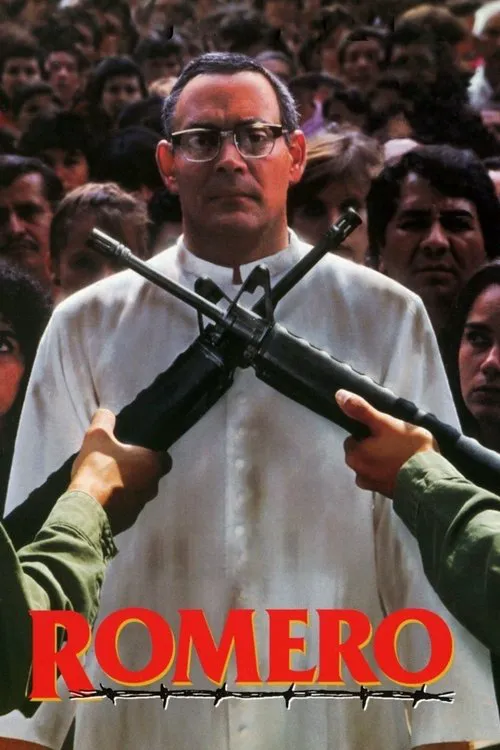Romero

Plot
Romero is a 1989 biographical drama film that tells the poignant story of Archbishop Oscar Romero, a key figure in the struggle against social injustice and oppression in El Salvador during the late 1970s and early 1980s. The film, directed by John Korty, stars Raul Julia as the iconic archbishop who would ultimately give his life for the cause of human rights. The film begins with Romero's appointment as the Archbishop of San Salvador in 1977, a role that was initially seen as a routine promotion. However, as he immerses himself in the dire situation of his country, he is shocked by the stark contrasts between the country's rich natural resources and the widespread poverty and suffering among its people. Initially, he tries to maintain a neutral stance, prioritizing his role as a mediator within the Catholic Church hierarchy. However, his experiences during the Easter season of 1977 change him forever. Romero witnesses firsthand the brutal suppression of a peasant uprising, which was brutally put down by government troops and death squads. As he delves deeper into the stories of the suffering and brutality faced by the Salvadoran people, he finds himself increasingly politicized. He begins to see his role not just as a servant of the Church, but as an advocate for justice and human rights. Romero becomes increasingly close to Jesuit priest, Ignacio Ellacuria, played by Richard Hanna, and to the lay community leaders, who are fighting for the rights of the poor and the marginalized. They share with him their stories, their struggles, and their vision for a more just society. Romero sees the hope and resilience in the people he meets and begins to realize that the Church must speak out against the injustices of the world. As Romero becomes more vocal about the human rights abuses and government repression, he faces opposition from the Church hierarchy and from the ruling government. He is met with subtle and overt intimidation, threats, and even physical aggression. However, he remains resolute in his commitment to speaking truth to power and to standing in solidarity with the Salvadoran people. The film highlights Romero's courageous decision to challenge the military regime's brutal tactics and to consecrate his people to God. This decision sets him at odds with the military and the government, and he is subjected to a sustained campaign of harassment, intimidation, and eventual assassination. Despite the risks, Romero continues to advocate for the rights of the poor and the marginalized. He delivers powerful sermons that call for an end to violence and oppression, denounces the excesses of the military and the government, and urges his followers to stand up against injustice. Romero's transformation from a complacent priest to a committed leader is gradual but ultimately profound. He finds his voice, his courage, and his conviction as he witnesses the suffering of others and becomes more deeply involved in the struggle for justice and human rights. The film is a powerful tribute to the courage and conviction of Archbishop Oscar Romero, who gave his life in the service of others and stood up to the forces of oppression in the face of overwhelming danger. The story of Romero serves as a powerful reminder of the role that individuals can play in bringing about change and fighting for justice, even in the most difficult and challenging of circumstances. Romero's legacy lives on, inspiring countless people around the world to stand up against injustice, to advocate for human rights, and to work towards a more just and equitable society. The film is a testament to the enduring power of faith and conviction, and a reminder that even in the darkest of times, there is always hope for a brighter future.
Reviews
Recommendations



